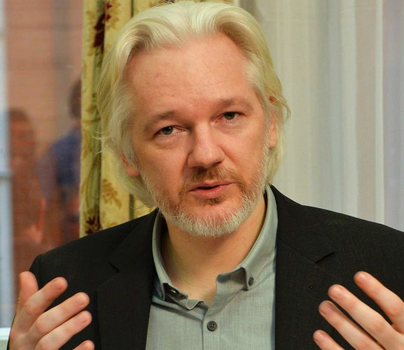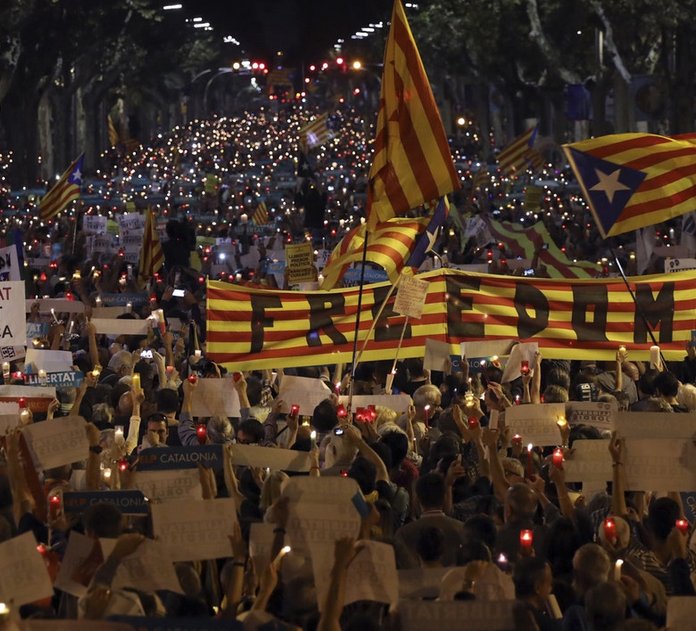Is Ecuador’s decision to silence Assange based on foreign pressure and ‘fake news’?
By M.C. McGrath and Glenn Greenwald
Julian Assange has been barred from communicating with the outside world for more than three weeks. On March 27, the Government of Ecuador blocked Assange’s internet access and barred him from receiving visitors other than his lawyers. Assange has been in the Ecuadorian embassy in London since 2012, when Ecuador granted him asylum due to fears that his extradition to Sweden as part of a sexual assault investigation would result in his being sent to the U.S. for prosecution for his work with WikiLeaks. In January of this year, Assange formally became a citizen of Ecuador.
in London since 2012, when Ecuador granted him asylum due to fears that his extradition to Sweden as part of a sexual assault investigation would result in his being sent to the U.S. for prosecution for his work with WikiLeaks. In January of this year, Assange formally became a citizen of Ecuador.
As a result of Ecuador’s recent actions, Assange – long a prolific commentator on political debates around the world – has been silenced for more than three weeks, by a country which originally granted him political asylum and of which he is now a citizen. While Ecuador was willing to defy western dictates to hand over Assange under the presidency of Rafael Correa – who was fiercely protective of Ecuadorian sovereignty even if it meant disobeying western powers – his successor, Lenín Moreno, has proven himself far more subservient, and that mentality – along with Moreno’s increasingly bitter feud with Correa – are major factors in the Ecuadorian government’s newly hostile treatment of Assange.

Julian Assange at the Ecuadorian embassy in London.
Yet many of the recent media claims made about Assange that have caused this standoff – which have centered on the alleged role of Russia in the internal Spanish conflict over Catalan independence – range from highly dubious to demonstrably false. The campaign to depict Catalan unrest as a plot fueled by the Kremlin, Assange and even Edward Snowden have largely come from fraudulent assertions in the Spanish daily El Pais and highly dubious data claims from the so-called “Hamilton 68 dashboard.” The consequences of these false and misleading claims – this actual Fake News – have been mutli-faceted and severe, not just for Assange but for diplomatic relations among multiple countries.
The Guardian reported last week that doctors who recently visited Assange concluded his health condition has become “dangerous.” The journalist Stefania Maurizi of La Republica yesterday confirmed that Assange “is still in the Ecuadorian Embassy in London and unable to access the internet and to receive visitors,” while the official WikiLeaks account provided further details about the restrictions Assange faces.
Ordinarily, western commentators would be lining up to denounce a country like Ecuador for blocking the communications and internet access of one of its own citizens. But because the person silenced here is Assange, whom they hate, their heartfelt devotion to the sacred principles of free speech and a free press vanish.

Catalonian independence march in Barcelona in 2017.
[When Ecuador first granted asylum to Assange, both the Ecuadorian Government and Assange’s lawyers have always said that Assange would board the next flight to Stockholm if the Swedish government gave assurances it would not extradite him to the U.S. Although Swedish prosecutors last year dropped the sex assault investigation into Assange, Trump’s CIA Director, Mike Pompeo, has vowed to do everything possible to destroy WikiLeaks and prevent it from publishing further, while the U.K. Government – an ally of the Trump administration – has vowed to arrest Assange on bail charges if he leaves the Embassy].
Evidence has now emerged that the cutting off of Assange’s communications with the outside world is the by-product of serious diplomatic pressure being applied to the new Ecuadorian president, pressure that may very well lead, perhaps imminently, to Assange being expelled from the embassy altogether. The pressure is coming from the Spanish government in Madrid and its NATO allies, furious that Assange has expressed opposition to some of the repressive measures used to try to crush activists in support of Catalan independence.
The day after blocking Assange’s communications with the outside world, Ecuador issued a statement alleging that Assange’s public statements are “putting at risk” Ecuador’s relations with other states. The Ecuadorian Government has previously expressed dissatisfaction with some of Assange’s political activities and statements, but the breaking point appears to have been a series of tweets from Assange about the arrest in Germany earlier this month of former President of Catalonia Carles Puigdemont.
Beginning in September, Assange had been tweeting regularly about the referendum for independence in Catalonia. Back then, Ecuador released a statement criticizing these tweets and emphasizing that “Ecuadorian authorities have reiterated to Mr. Assange his obligation not to make statements or activities that could affect Ecuador’s international relations.”
But why did these tweets about Catalonia, of all of Assange’s tweets about politics in other countries and the role he played in the 2016 U.S.election, lead – after five years – to such a response? And why now? And why and how did the west succeed in convincing so many of its citizens that the movement for Catalan independence – which has been a source of internal conflict in Spain for years – was now suddenly fueled by a Kremlin plot with Putin as the puppet-master?
The answers provide a vivid example of how claims about fake news, western propaganda and disinformation can be used as a tactic for political manipulation. The circumstances leading to recent events extend beyond Julian Assange, and understanding them requires background on political pressures in Spain, Ecuador, the United States, and the United Kingdom, and how these intersect with Assange’s case.
To continue reading, click here, and scroll to “The tension between …”
___________________
Credit: The Intercept, https://theintercept.com


















